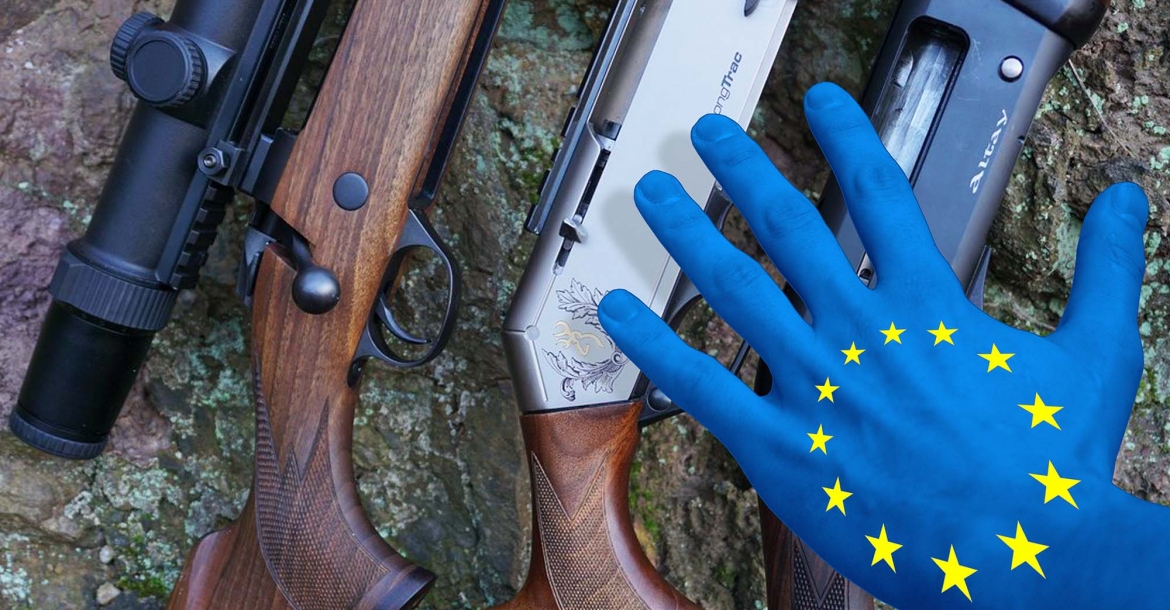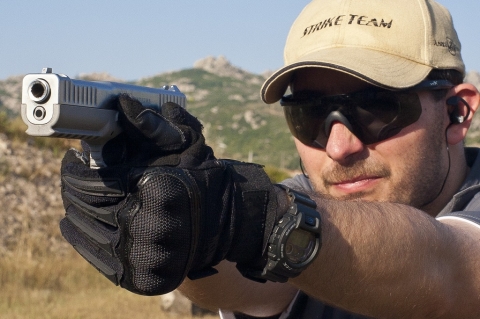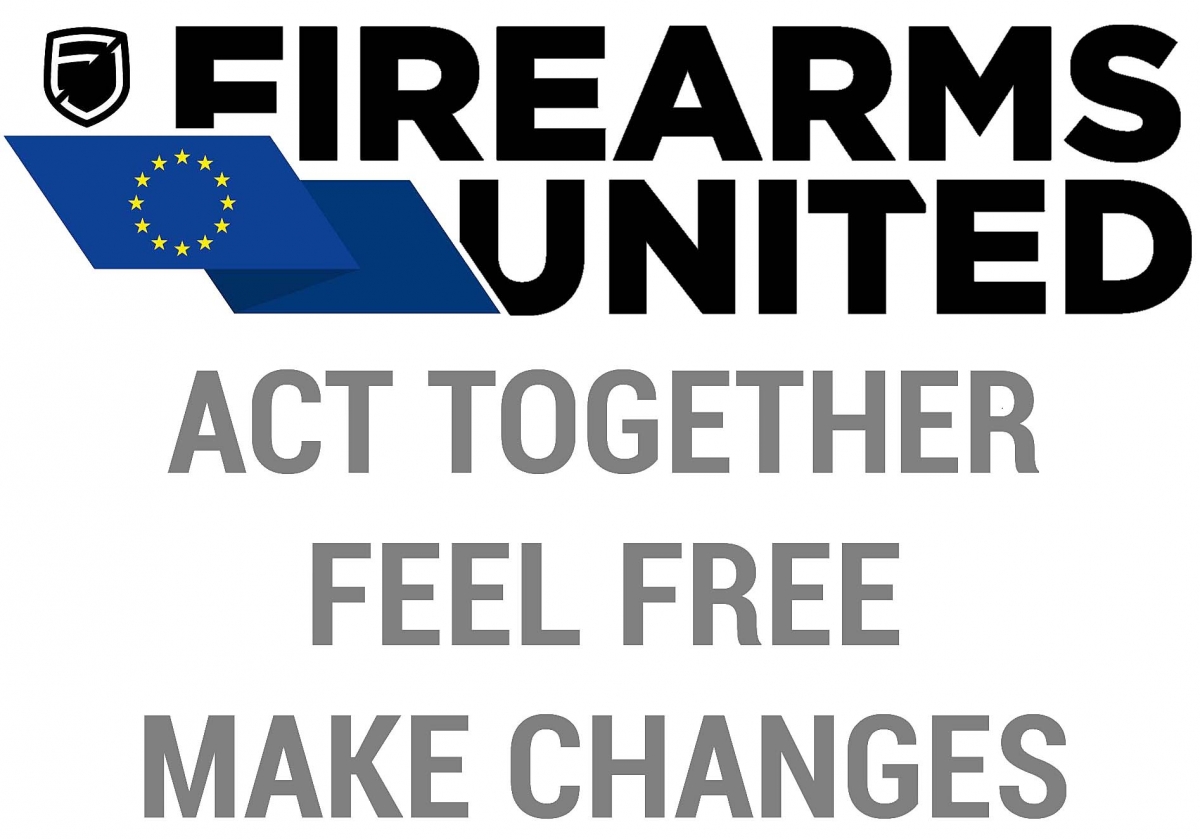Gun Rights: the Open Fronts in Europe
The Czech Republic is just the tip of it: according to the Firearms United network, many Countries have court cases open and law proposals filed whose outcome will be fundamental for the safeguard of gun rights in Europe
The ink has not dried yet on the papers of the new European firearms directive – still in-famously known as the "EU Gun Ban" despite having been vastly watered down – and several new fronts are already opening Europe-wide for the ongoing struggle in defense of gun rights in the Old Continent. As the deadline for the implementation looms by, many Member States which heavily lobbied for the EU Gun Ban will indeed try to impose at a national level those most draconian provisions of the early Commission proposal that have thrown out by the European Parliament.
"Something is moving" in five Countries at the very least, with many more involved in the process. The Firearms United network for the safeguard of gun rights in Europe – of which we at GUNSweek.com are proud media partners! – has been so kind to highlight for us those that are more attention-worthy, as their outcome will be likely fundamental.
Czech Republic and Poland appeal to the European Court of Justice
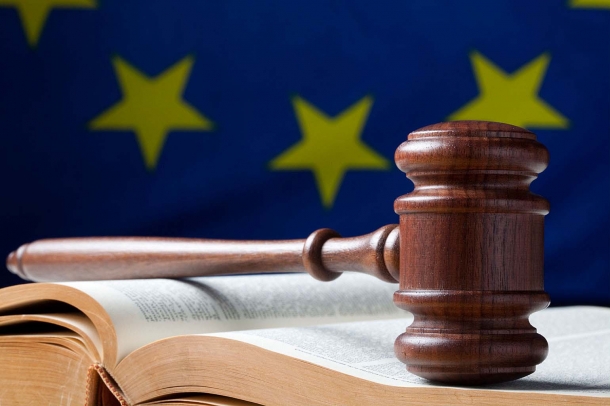
The hearings of the Czech appeal against the EU gun ban are due to start soon at the ECJ
As announced a few months ago, Czech Republic appealed against the new European firearms directive before the European Court of Justice. According to the national government in Prague, the new firearms directive is too stringent to be considered a good compromise between public safety and individual rights, and would only be punitive against law-abiding citizens, with little to no effect on the black market, crime and terrorism.
Not to mention, its approval procedure has been littered with irregularities, with the decisions of the European Parliament having been forced by the European Commission and Council through undue political pressure and the use of deliberately misleading, fabricated data showing false information about the danger posed by certain categories of legal firearms.
The Firearms United network has announced yesterday that Poland will be joining forces with the Czech Republic; the relevant document has been laid down on October 6th, but was not made public until today.

Poland is joining forces with the Czech Republic before the European Court of Justice
The Polish government also asked the deadline for national implementation of the directive to be suspended indefinitely until the ECJ comes out with a ruling. Czech Republic asked the same, when first lodging their appeal, but said request was rejected.
According to the official Polish document as translated in English, the EU Gun Ban was "based on the wrong assumptions and lacking the proper factual and bona fide justification showing that there is a significant dependency between legal market and legal possession, by the EU citizens, specific kinds of firearms, and illegal market, which is connected with criminal activities. As the result, the new solutions are excessive, too harsh and not always rational."
It could take more than a year for the European Court of Justice to reach a verdict on the matter. This means that, should the Polish request for a suspension of the implementation deadline be rejected, all Member States would have to implement the EU Gun Ban in their national laws regardless and then find themselves enforcing national laws based on a European directive that's been thrown out by the ECJ.
Should that be the case, however, gun rights advocacy groups in every individual Country should have an easier way when asking for those laws to be amended, as it would be politically for many national governments to defend them following an ECJ ruling.
Sweden, Norway, Switzerland: something's rotten up north
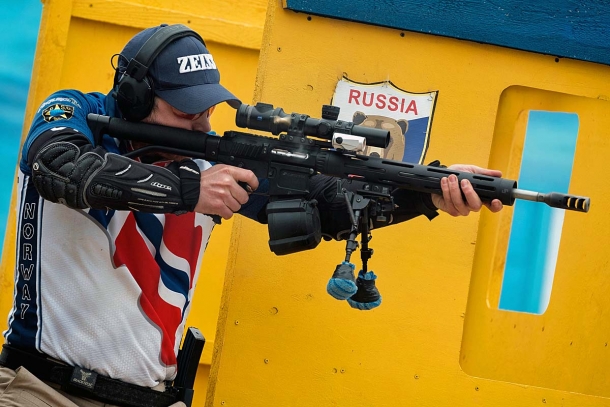
The situation is also pretty dire in Norway, where the government announced its plans to ban modern sporting rifles altogether for most shooters
One of the most important gun rights cases currently sitting in a European court is taking place in Sweden, and concerns the situation of a Swedish shooter (who asked to remain anonymous) whose license applications for two AR-15 rifle variants for the practice of "Free Rifle Shooting" have been rejected by the Swedish Police.
In Sweden, shooters need to obtain a separate license for each firearm they purchase; and for several decades now, the national Police of a Country that's long been considered a global paladin of transparency and democracy has steered towards a radically hoplophobic position.
Peter Thorsell, a high-ranking Swedish Police official, was assigned at GENVAL as an "expert" on the matter during the approval procedure for the EU Gun Ban, and he overtly sided for radical restrictions. Backed by the Swedish Ministry of Interior, Anders Ygeman, he has been able to exceed the Swedish Parliament mandate and get away scot-free. Minister Ygeman was recently sacked following an unrelated scandal, but Peter Thorsell maintains a radical anti-gun stance, and it's no wonder he's been involved in this case also.
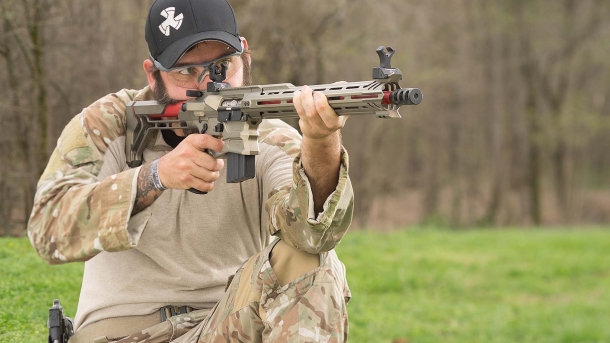
The Swedish Police has been caught in a flagrant attempt to circumvent laws and reach a de facto bureaucratic nationwide ban on modern sporting rifles
According to attorney Sebastian Schieman, representing the plaintiff before the Swedish high administrative court, the Swedish Police resorted to many dirty tricks to deny said license.
Membership to a shooting club is mandatory for sport shooters in Sweden, and before a sport shooter can obtain a license to purchase a firearm, his or her shooting club must issue a certification stating that said firearm can be used within the club for a regular shooting discipline.
But the Police has the power to decide which gun ranges and shooting federations are "credited" in Sweden to release said papers; and in this case, apparently the Swedish Police blackmailed the relevant shooting range and national sport shooting federation to change their rules so that the shooting discipline the shooter intended to practice with his rifles would no longer be recognized, thus no longer grounds for a license.
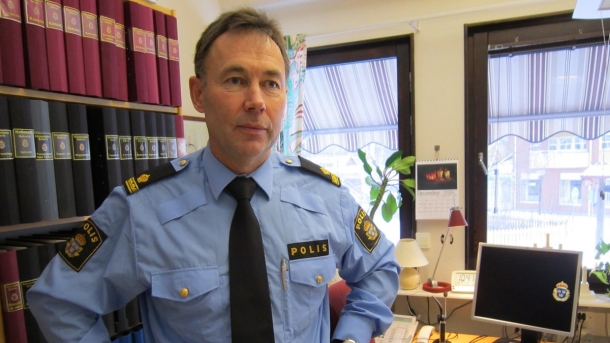
High-ranking Police official Peter Thorsell has long been one of Sweden's staunchest supporters of gun control, and is involved in the latest attempt to tighten the screw over the gun rights of law-abiding Swedish citizens
It might sound like a big conspiracy theory, particularly given the high level of effort in their attempt to deny a single license, but it's actually not – and for a very good reason, according to attorney Schieman.
Lacking a Constitutional Supreme Court, Sweden depends on other court rulings in terms of constitutional rights.
And since the Swedish National Police enjoys a high level of freedom in terms of gun license, should the plaintiff loose this case, the Police in Sweden would find itself in a position to circumvent the law by bureaucracy and decide by itself, without any sort of democratic oversight, which guns are to be licensed and which ones are to be de facto banned, thus implementing a ban on modern sporting guns without Parliament approval and without a law being passed that would specifically ban said guns. It would simply be in their power to decide which firearms are to be licensed and which aren't.
That's the reason why the Firearms United network decided to get directly involved in this landmark case.
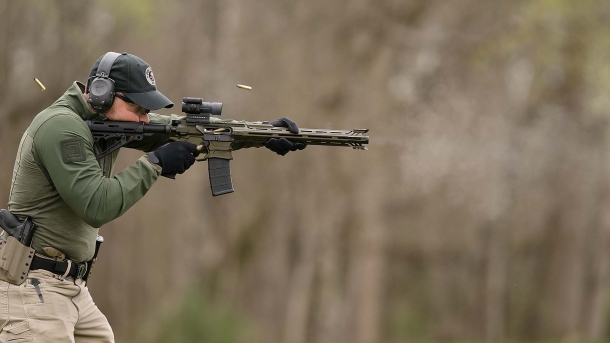
The new Norwegian gun laws could kill 3-Gun, IPSC and other shooting disciplines outright
There are also other Countries, which are not part of the European Union, that are forced to implement the European firearms directive as they're part of the Schengen free trade area. Among those is Norway; and the Norwegian government has already announced that they intend to proceed for a "hard" implementation, adopting the restrictions originally proposed by the European Commission and thus implementing a total ban on those firearms that are even vaguely based on military weapons; that's something Norwegian politicians have been trying to do ever since the Utøya island massacre of July 22, 2011.
According to the Norwegian government announcement – once again, justified by the Utøya island massacre! – the banned firearms should be restricted only and solely to certified collectors and top-tier competition shooters. What's left to see is how could a beginner become a "top-tier competition shooter" if he or she is barred from access to the types of firearms used in several disciplines and could not train as a result.
Said ban would likely destroy completely several types of practical shooting disciplines in one of the world's most highly regarded Countries in terms of transparency, democracy, and safeguard of individual and human rights.
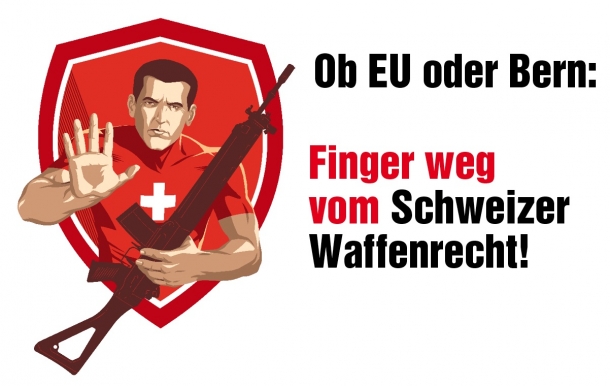
Even Switzerland sees its historic, quintessential gun rights threatened by the European directive
As a Schengen Country, even Switzerland – a world example in gun rights! – will have to implement the European firearms directive.
So far, the Federal Council is looking for a "soft" approach, but by no means the Swiss gun owners' community is going to have any of that: PRO-TELL and many other organizations and leagues dedicated to the protection of gun rights in Switzerland have announced a national initiative against the restrictions which may lead to referendum for the repeal of said laws, if passed, or even for the exit of Switzerland from the Schengen Area and the Dublin Regulation.
Spain: the Cantabrico Militaria ordeal

The Cantabrico Militaria case is another one sitting in courts, awaiting resolution
Headquartered in the Basque town of Getxo, Cantabrico Militaria is one of the best known and established gun shops in Spain. All through the past months, Cantabrico Militaria has been entangled in a tricky, thorny situation that's been highlighted to us by the Spanish gun rights advocacy association ANARMA – yet another member of the Firearms United network as well as of the Foundation for European Societies of Arms Collectors (FESAC).
Early on this year, the Spanish National Police (CNP) and EUROPOL raided Cantabrico Militaria, seizing thousands of former Spanish Army firearms purportedly "ready to be sold on the black market". The raid was highly publicized by the Spanish media, and Cantabrico Militaria's reputation was tarnished as a source of black market guns for criminals and terrorists.
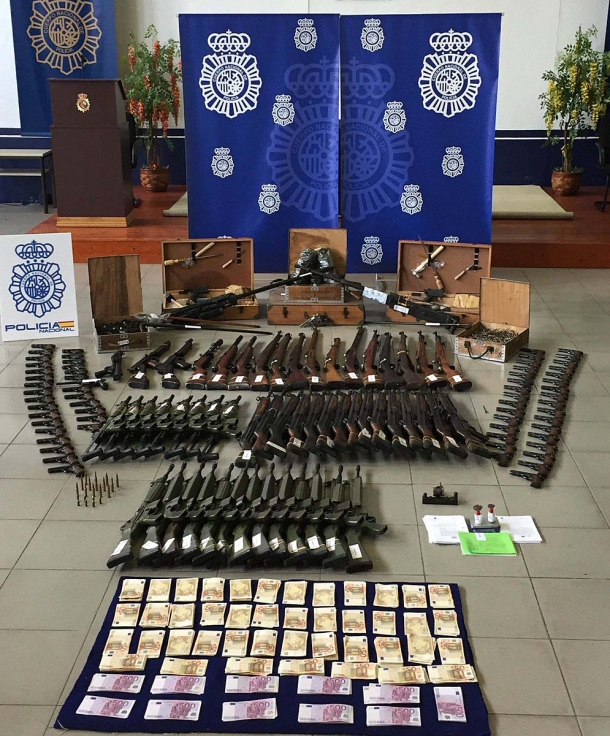
Some of the deactivated firearms seized by CNP to Cantabrico Militaria
Mainstream media weren't however so attentive when, a few months later, the father and daughter who own Cantabrico Militaria were cleared of all charges except one – the possession of a proofing machine.
The reason being: not only all those guns were legal and documented, they were also all deactivated. Cantabrico Militaria had legally purchased them from the Spanish Army to deactivate and sell them to collectors, but had to hald the operations when the new deactivation regulations were published by the European Commission in late 2015.
So far, Cantabrico Militaria is yet to receive the deactivated guns back from the Spanish National Police. This summer, the owners of Cantabrico Militaria had a meeting with the Guardia Civil about the matter, and from the Spanish gendarmerie they allegedly received information about the raid being nothing short of a "marketing operation" which had no legal basis and no other purpose but to support the EU Gun Ban.
And while Spanish courts are still waiting to see which one of them will have jurisdiction to handle the case, and while the Spanish National Police is refusing to "accept the disgrace" and relinquish control of the seized guns to the Guardia Civil – which would, in turn, hand them back to Cantabrico Militaria – the farce continues. And thousands of significant collector's items remain stored in unguarded containers at the outskirts of Bilbao, with no protection against theft or rust.
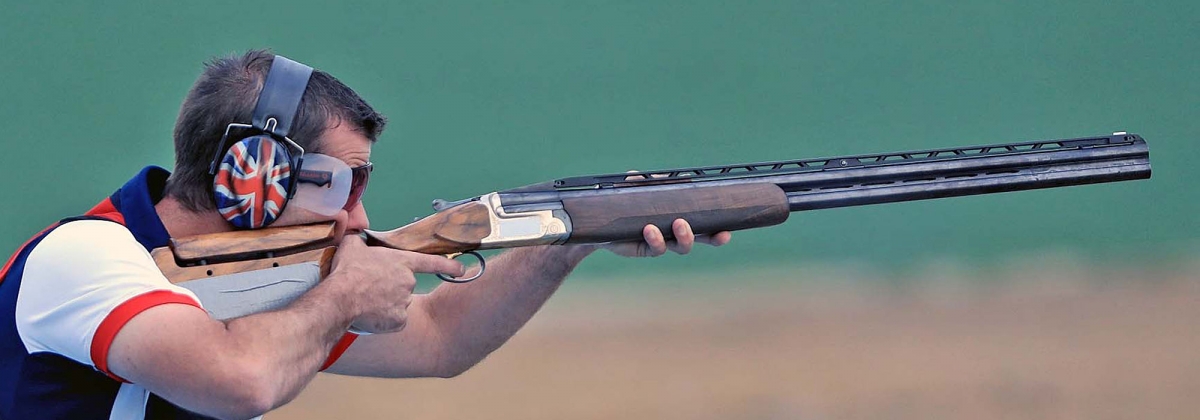
The United Kingdom, a global pillar of gun control, is gearing up to further tighten the screws on the already slim rights enjoyed by the British shooters community
United Kingdom: just when you thought it couldn't get any worse...
The new restrictive proposal by the Home Office may ban Britons from owning .50-caliber and MARS/Lever Release rifles
The date has been set: on March 29th, 2019, the United Kingdom will leave the European Union. But according to Firearms UK – a member of the Firearms United network – just because the UK is outgoing and probably unlikely to implement the European firearms directive, that doesn't mean that British politicians are unwilling to tighten the screws on the already draconian British gun control even further.
Instead of facing the truth and admit that their gun control laws have failed and turned the United Kingdom into the most violent Country in Europe for several years in a row, the British Home Office recently announced an impact assessment and law proposal intended to lead up to a total ban to .50-caliber long-range shooting rifles and on MARS and Lever Release rifles.
MARS and Lever Release rifles are highly modified versions of modern sporting rifles specifically conceived for the British civilian market which is barred from access to semi-automatic rifles. MARS and Lever Release rifles are magazine-fed, single shot rifles whose bolt locks in the open position after each shot is fired; the shooter has to pull the trigger or manually push the hold-open button to lock it back to the firing position shot after shot.
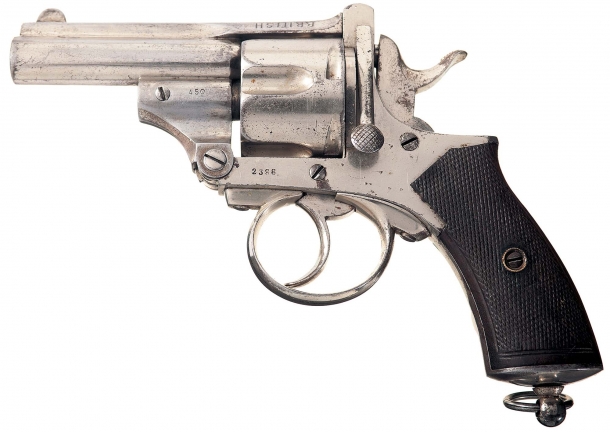
Even antique firearms are being targeted by new legislation in the UK
Once again, the justification for this new tightening of the screw – for which a public consultation was also launched – is that those are "offensive weapons" that could be "particularly dangerous" should they be stolen and end up in the hands of criminals and terrorists.
Just like in America, gun control advocates are accusing .50-caliber rifles to be apt to the use of "armor piercing ammunition", and early on this month, a government minister has been found deliberately lying to the Parliament about the matter. The ban would not only affect .50-caliber rifles, but also all firearms with a muzzle energy exceeding 10.000 ft/lbs (13558 Joules).
But the Home Office is also seeking new restrictions on antique firearms. So far, handguns and long guns chambered for obsolete calibers have been left out of the reach of the draconian British gun laws; very soon, this may no longer be the case.
We would certainly like to hear from the British government how criminals and terrorists may be interested in buying heavy, totally un-concealable and very hard to hide single-shot bolt-action rifles or small-caliber long guns whose bolt must be locked manually after every single shot – particularly since the British black market is literally awash with modern illegal firearms.
But of course we are confident that, after firearms worth thousands of Pounds will be confiscated from their law-abiding owners and destroyed, the United Kindgom will be a safer place. Because it worked "so well" the last time!.

